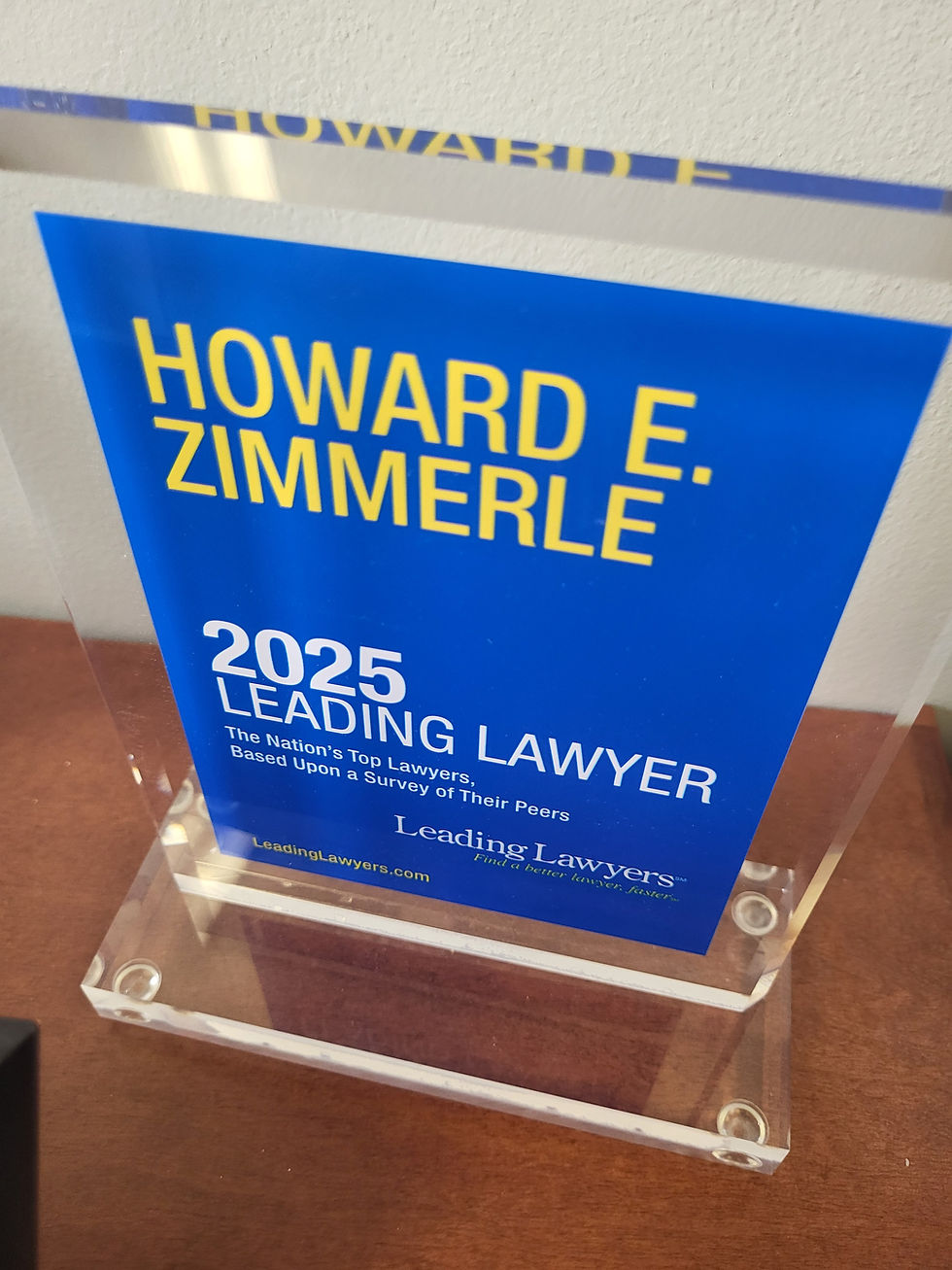Night Driving - See the Light in the Dark
- Howard Zimmerle

- Oct 31, 2025
- 3 min read
We all hate coming into work when it's dark and leaving when it's dark, don't we? At Zimmerle Law we'd rather see safe roads in the Quad Cities than a lot of new car crash cases. As an attorney and the parent of a new driver, we wanted to provide some tips for night time driving. Of course, if you or someone you know was hurt in a car crash and wasn't at fault, we'd be happy to talk to you - 309-581-5336.
🌙 Drive Safe When the Sun Sets Sooner: Essential Tips for the Time Change
Daylight Saving Time is ending (yep - we're still doing that), which means more than just setting your clocks back on Sunday, November 2, 2025—it means our evening commutes are suddenly plunged into darkness. As we "fall back" into Standard Time, the sun sets an hour earlier, significantly increasing the amount of driving we do after dark.
Driving at night presents a unique set of challenges: reduced visibility, increased glare, and the risk of driver fatigue. The National Safety Council warns that the risk of a fatal crash is three times greater at night.
Here are essential tips to help you navigate the darker hours safely and avoid accidents during this seasonal transition.

🚗 Prepare Your Vehicle: See and Be Seen
Your car is your first line of defense against the hazards of night driving. Ensure it's in top condition to maximize visibility.
Check and Clean Your Lights: Inspect your headlights, taillights, and turn signals. Replace any burned-out bulbs immediately. Keep your headlight lenses clean and clear—hazy or yellowed plastic can dramatically reduce light output.
Wipe Down Windows and Mirrors: Dirt and streaks on your windshield, windows, and mirrors can cause severe glare from oncoming headlights, scattering the light and momentarily blinding you. Clean them inside and out regularly.
Top Off Fluids: Ensure your windshield washer fluid is full and your wiper blades are in good working order. You need a clear view when rain, mist, or road spray hit.
🧠 Adjust Your Mindset: Combat Fatigue and Distraction
The time change can disrupt your internal clock, leading to drowsiness just as you're getting behind the wheel.
Prioritize Rest: Be mindful of the time change's effect on your sleep cycle. Aim for 7-9 hours of sleep each night, especially in the week following the clock change. If you feel tired, pull over for a break or a quick nap—drowsy driving is impaired driving.
Eliminate Distractions: Visibility is already compromised in the dark; you need your full attention on the road. Put down the phone, avoid eating, and keep music volume at a non-distracting level.
Dim Your Dash Lights: Excessively bright dashboard and instrument panel lights can reduce your eyes' ability to adapt to the dark road ahead. Use your vehicle's dimmer switch to keep interior light to a minimum.
🚦 Change Your Driving Habits: Slow Down and Look Ahead
Night driving requires a more defensive and cautious approach, as your reaction time is naturally slower.

Reduce Your Speed and Increase Following Distance: Speed limits are often set for ideal daytime conditions. Drive slower at night to ensure you can stop within the range of your headlights. Maintain a greater following distance—give yourself extra time and space to react if the car ahead brakes suddenly.
Use High Beams Wisely: On dark roads with no oncoming traffic, use your high beams for maximum visibility. Immediately switch to low beams when approaching or following another vehicle to avoid blinding other drivers.
Handle Glare Safely: When facing an oncoming vehicle with bright headlights, avoid
staring directly into them. Instead, shift your gaze down and toward the right side of your lane, using the white edge line as a guide until the car passes.
Watch for the Unseen: Pedestrians, cyclists, and wildlife (especially deer, which are more active at dusk and dawn) are much harder to spot in the dark. Be extra vigilant in residential or rural areas, scanning the road for movement or the reflection of your lights in an animal's eyes.
By preparing your car, staying rested, and adopting a more cautious driving style, you can successfully navigate the earlier darkness and keep yourself and others safe on the road this fall and winter.
(Howard Zimmerle is a car accident attorney in Illinois and Iowa. He can be reached at 309-581-5336)




Comments